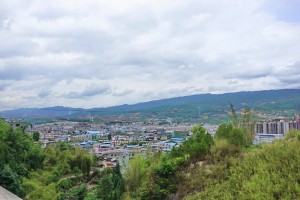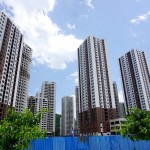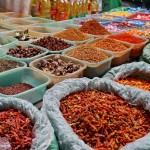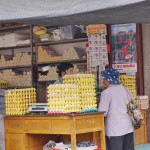The towns and cities are all organised in a similar way. Often in the periphery there are new skyscraper living suburbs. In the outer circles you find the car/truck/bike mechanics. A little more towards the centee between the mechanics you find shops with household items, with windows, furniture and hardware for bathroom, kitchen. Again more central some street kitchens turn up and the «handyman stores» with the little metal goods, rope, tape and necessities to fix home electricity, first cloth’s shops, pharmacies. Then you are in the center what you realise when restaurants alternate with little general stores, where also SIM cards and mobile phones are sold and along the roads fruit and vegetable is traded on mobile stands. Here in between you might also find the supermarket and the bakery. The heart of any Chinese town, the market will also be just around the corner. In cities there is an additional inner circle, the digital world, with dozens of businesses and glittering modern shops for electronics or fashion. In this circle loud music blares out of the shops with open doors. How that many similar shops can survive next to each other we will never understand. Even less so, considering, that we hardly ever see any customers inside while 3-6 employees stand around and chat or play with their phones.
The singing wastecollecting vehicle is busy all the time and the roads therefore are quite clean. But we’d think it much more efficient if the Chinese would throw everything onto the ground. However it is not that easy. «Throwing the rubbish onto the road» is mirroring the old class system of the Chinese society. A member of the upper class is above taking care of rubbish and with letting it lay around is even securing a job for one of the lower class.




